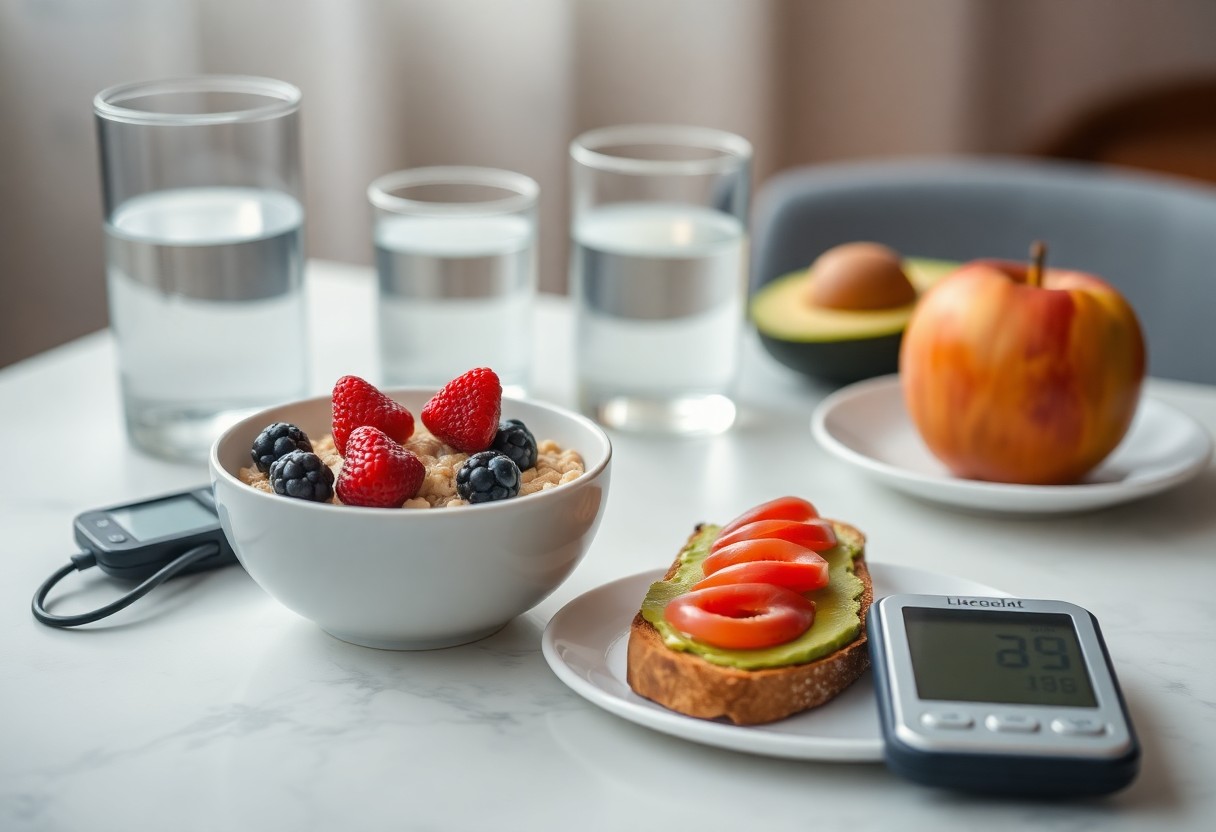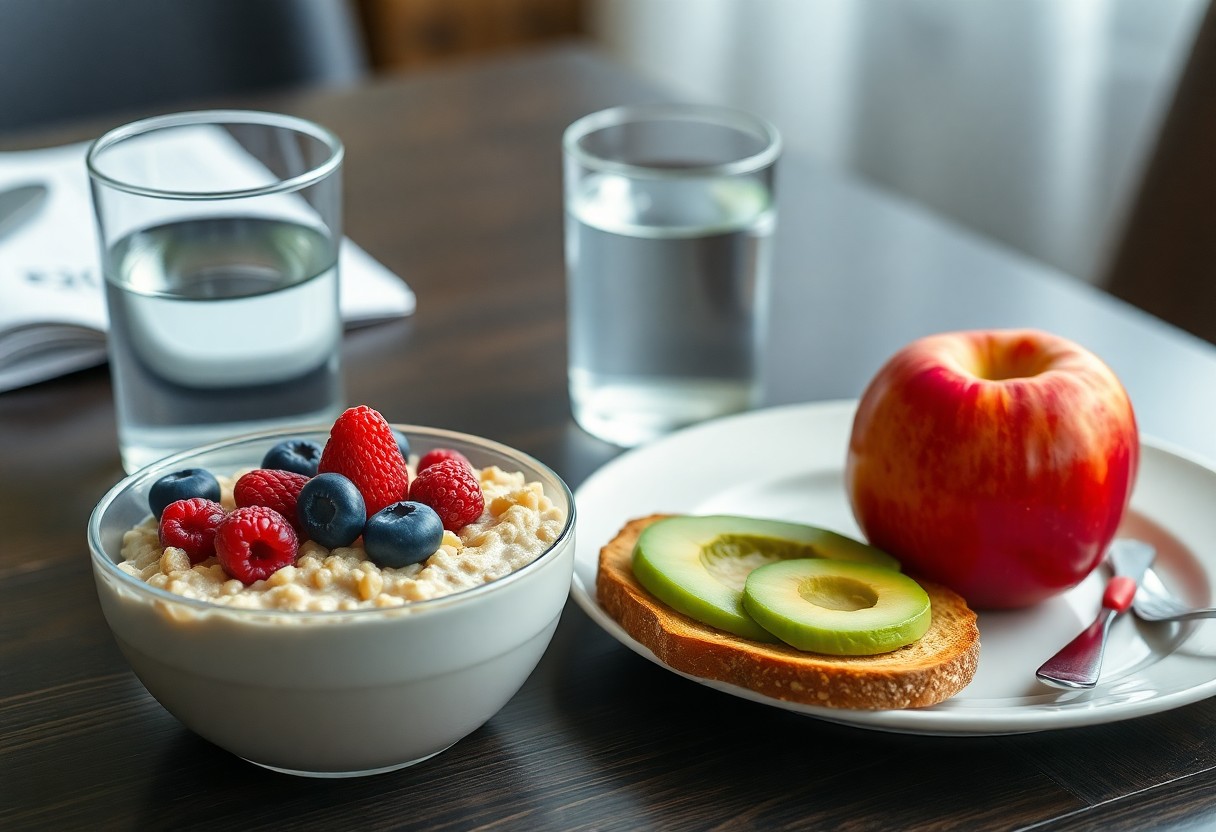You can take significant steps towards better health by understanding your blood sugar levels. Maintaining a balanced blood sugar range is vital for your overall well-being and can help prevent various health issues. In this blog post, you'll discover what constitutes a healthy blood sugar range, as well as practical tips to keep your levels stable. For more information on what is considered a healthy level, check out this resource on What Is the Normal Range for Blood Sugar?

Understanding Blood Sugar Levels
While managing your overall health, grasping the concept of blood sugar levels is vital. Blood sugar, also known as glucose, serves as your body’s primary energy source. It’s important to be aware of how your blood sugar fluctuates throughout the day and how factors like diet, exercise, and stress can influence these levels. By understanding blood sugar dynamics, you can take proactive steps to maintain balance and enhance your wellbeing.
What is Blood Sugar?
With the right level of blood sugar in your system, your body functions optimally. Blood sugar refers to the concentration of glucose present in your bloodstream, which primarily comes from the foods you consume. Hormones, particularly insulin, regulate these glucose levels, ensuring that your body has enough energy for daily activities.
Normal Blood Sugar Ranges
On average, normal blood sugar levels for most individuals fall within a specific range. For fasting blood sugar, the typical range is between 70 and 100 mg/dL. After meals, levels should ideally remain below 140 mg/dL two hours post-ingestion, while levels taken at random times should also remain under 200 mg/dL to be considered normal.
And understanding these normal ranges is vital for your health. Maintaining blood sugar within these thresholds helps prevent potential complications such as insulin resistance, diabetes, or other metabolic disorders. Regular monitoring can assist you in recognizing patterns and making necessary adjustments in your lifestyle to support stable blood sugar levels throughout the day.
Factors Affecting Blood Sugar Levels
Even small changes in your daily routine can impact your blood sugar levels. Key factors include:
- Your diet and nutrition
- Physical activity levels
- Stress management
- Sleep quality
Any variations in these areas can lead to fluctuations in your blood sugar levels, making it crucial to maintain a consistent lifestyle.
Diet and Nutrition
Around 50% of your blood sugar management relies on your dietary choices. Consuming balanced meals rich in whole foods, fiber, and healthy fats can help you stabilize your blood sugar. Limit processed sugars and carbohydrates to support your well-being.
Physical Activity
Between exercise sessions, your body utilizes energy differently, which can directly impact your blood sugar levels. Engaging in regular physical activity helps improve insulin sensitivity and allows your cells to use blood glucose more efficiently.
The type and intensity of your workouts also matter. Aerobic exercises—such as walking, cycling, or swimming—enhance heart health and facilitate glucose uptake. Additionally, strength training can build muscle mass, further aiding in blood sugar regulation. Aim for a mix of both for optimal results.
Stress and Sleep
Activity can significantly affect your blood sugar levels. Chronic stress can lead to elevated cortisol, which can increase blood sugar, while poor sleep disrupts hormonal balance, impacting your metabolism.
This is why managing stress and ensuring adequate sleep are crucial for maintaining stable blood sugar levels. Practice relaxation techniques such as deep breathing, meditation, or yoga, and strive for 7-9 hours of quality sleep each night to support your overall health.
Tips for Maintaining Healthy Blood Sugar
Unlike many beliefs, maintaining healthy blood sugar levels requires a holistic approach. Implementing the following tips can make a significant difference:
- Choose whole grains over refined carbs.
- Incorporate more fiber-rich foods.
- Stay hydrated with water.
- Limit sugary drinks and snacks.
- Manage stress through relaxation techniques.
Knowing how to incorporate these practices into your daily routine can help you achieve balance and support your overall health.
Balanced Meal Planning
On your journey to stable blood sugar, balanced meal planning is crucial. Aim to fill your plate with a variety of nutrients, including lean proteins, healthy fats, and complex carbohydrates. This balanced approach slows down digestion and helps regulate sugar spikes.
Regular Exercise
Behind every successful blood sugar management plan lies regular exercise. Engaging in physical activity not only helps in burning excess glucose but also promotes better insulin sensitivity. Incorporate both aerobic and resistance training into your routine for optimal results.
It is beneficial to find activities you genuinely enjoy, whether it's walking, cycling, or dancing, as this will make it easier to stay consistent. Additionally, aim for at least 150 minutes of moderate exercise each week, breaking it down into manageable sessions that suit your lifestyle. This commitment to physical activity will significantly impact your blood sugar stability and overall well-being.
Monitoring Blood Sugar
Along this journey, monitoring your blood sugar is paramount. Regular checks can help you understand how your lifestyle choices affect your levels and highlight patterns that need attention. Keeping a log of your readings can facilitate better management strategies.
To effectively monitor your blood sugar, consider using a continuous glucose monitor (CGM) or a traditional glucose meter. Establish a routine for testing at key times—such as before meals and after exercising—to provide valuable insights into how your body responds. This proactive approach empowers you to make informed decisions that support your health goals.
The Role of Medications and Supplements
After understanding the importance of maintaining balanced blood sugar levels, you may explore medications and supplements that support this goal. These options can be integrated into your health regimen to enhance your overall management of blood sugar levels. Consulting a healthcare professional will help you determine the best approach to take based on your individual needs.
Common Medications
Role of medications in blood sugar management often involves prescription drugs that aim to improve insulin sensitivity or increase insulin production. Depending on your condition, you may be prescribed oral medications or insulin injections. Maintaining regular communication with your healthcare provider ensures that you receive tailored advice and adjustments to your treatment plan, enhancing your blood sugar control.
Natural Supplements
To explore natural supplements, consider options like cinnamon, chromium, and alpha-lipoic acid, all of which have shown potential in supporting blood sugar balance. These supplements may help improve insulin sensitivity or enhance glucose metabolism, providing a complementary approach to your overall management strategy.
And, incorporating these natural supplements can provide you with an easy way to enhance your health without the complications sometimes associated with medications. However, always discuss their use with your healthcare provider to ensure they align with your personal health plan and do not interfere with any medications you may be taking.

Recognizing and Managing Blood Sugar Fluctuations
Your ability to recognize and manage blood sugar fluctuations is crucial for maintaining optimal health. You may experience varying levels of energy, mood swings, and changes in appetite as your blood sugar levels rise and fall. Monitoring these fluctuations and understanding the factors that contribute to them—such as diet, stress, and physical activity—can empower you to make informed choices that promote stable blood sugar levels and overall well-being.
Symptoms of High and Low Blood Sugar
Against fluctuating blood sugar levels, being aware of the symptoms is vital. High blood sugar may cause increased thirst, frequent urination, and fatigue, while low blood sugar can lead to shakiness, sweating, irritability, and confusion. Staying alert to these signs can help you take prompt action to restore balance.
Emergency Responses
Sugar levels can fluctuate rapidly, making emergency responses important for your well-being. In the event of low blood sugar, consuming fast-acting carbohydrates, such as glucose tablets or juice, can quickly raise your levels. Conversely, if you experience high blood sugar symptoms, drinking plenty of water can help flush excess glucose from your system. Keep a fast-acting source of sugar on hand and don’t hesitate to seek medical advice if symptoms persist.
Understanding how to respond in emergencies can significantly affect your health outcomes. For low blood sugar, act quickly by consuming 15 grams of fast-acting carbohydrates, then retest your blood sugar after 15 minutes. If symptoms don't improve, repeat the process until you feel better. For high blood sugar, monitor your levels regularly and consult your healthcare provider for guidance on managing situations where your blood sugar elevates dangerously high. Empower yourself with knowledge and proper supplies for effective emergency responses.
Long-Term Strategies for Blood Sugar Management
Now is the time to adopt long-term strategies for effective blood sugar management. Maintaining stable blood sugar levels requires a commitment to lifestyle choices and ongoing education. Embracing these strategies will empower you to take control of your health and reduce your risk of complications associated with blood sugar imbalances.
Lifestyle Changes
Strategies that incorporate regular physical activity, balanced nutrition, and stress management can significantly impact your blood sugar levels. Aim for a mix of exercise routines, and choose whole, unprocessed foods while being mindful of portion sizes. These lifestyle changes not only help regulate blood sugar but also promote overall well-being.
Continuous Education
Along your journey, staying informed about blood sugar management is important. Understanding how different foods, activities, and stressors affect your blood sugar levels allows you to make informed decisions that lead to better health outcomes.
Lifestyle modifications are not a one-time effort; they require a continuous learning process. Engage with reliable resources such as nutrition workshops, diabetes support groups, and reputable health websites. Keeping yourself educated enables you to adapt your approach based on the latest research and guidelines, fostering a proactive attitude towards your well-being.
Conclusion
From above, you can see that maintaining healthy blood sugar levels is important for your overall well-being. By knowing your target ranges and implementing effective strategies, you can promote better health and energy levels. Incorporate practical tips into your daily routine, such as those found in this article on 14 Easy Ways to Lower Blood Sugar Levels Naturally. Taking proactive steps can significantly impact your blood sugar balance and enhance your quality of life.
FAQ
Q: What is considered a healthy blood sugar range for adults?
A: A healthy blood sugar range for adults typically falls between 70 to 130 mg/dL before meals and less than 180 mg/dL two hours after eating. These values can vary based on individual health conditions, so it is advisable to consult with a healthcare provider for personalized recommendations.
Q: How can I monitor my blood sugar levels effectively?
A: You can monitor your blood sugar levels using a glucometer, which measures your blood sugar from a small drop of blood. It's important to follow a regular testing schedule as advised by your healthcare provider. Keeping a log of your readings along with notes on your diet and activity can help in recognizing patterns and making necessary adjustments.
Q: What dietary tips can help maintain balanced blood sugar levels?
A: To maintain balanced blood sugar levels, focus on a diet rich in whole grains, lean proteins, healthy fats, fruits, and vegetables. Eating smaller, more frequent meals can help prevent blood sugar spikes. Additionally, incorporating fiber-rich foods and pairing carbohydrates with protein or healthy fats can contribute to stable blood sugar levels.
Q: How does physical activity affect blood sugar regulation?
A: Regular physical activity plays a significant role in controlling blood sugar levels. Exercise helps improve insulin sensitivity, allowing your cells to utilize glucose more effectively. Aim for at least 150 minutes of moderate-intensity exercise each week, such as brisk walking, cycling, or swimming, while also incorporating strength training activities on a couple of days.
Q: What lifestyle changes can promote better blood sugar balance?
A: In addition to diet and exercise, several lifestyle changes can contribute to better blood sugar management. Prioritizing sufficient sleep, managing stress through mindfulness or relaxation techniques, staying hydrated, and avoiding excessive alcohol consumption are all beneficial. Consulting with a healthcare professional can help tailor these changes to your individual needs and health goals.

0 Comments